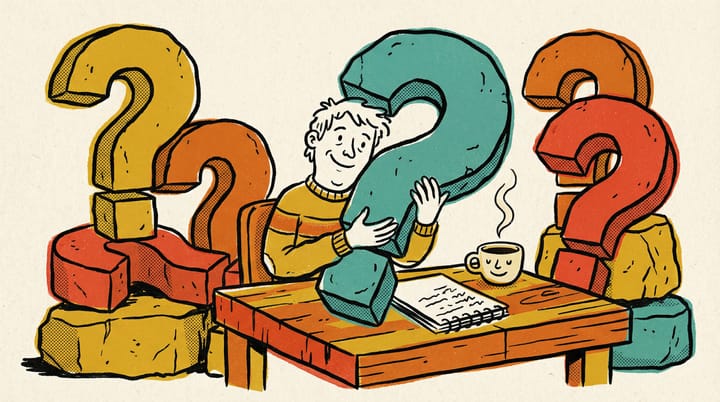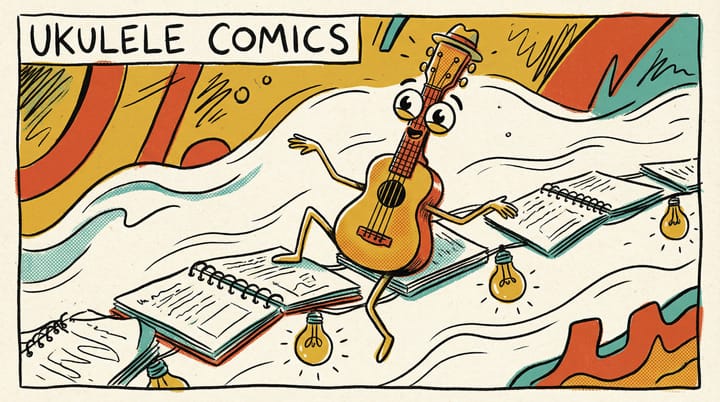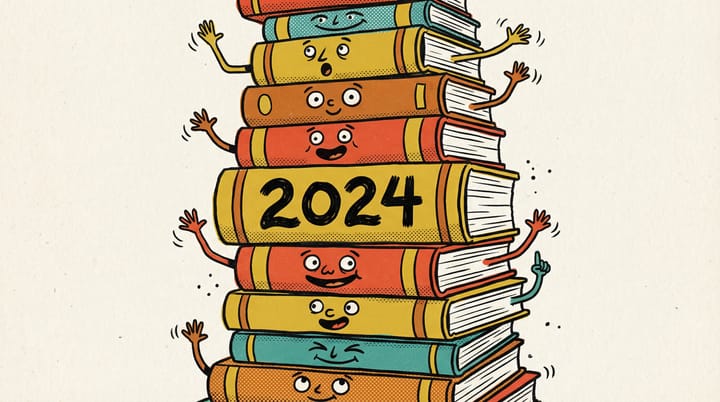Living The Questions

I recently left Hiro, after 6 incredible years. It was the most rewarding experience of my career thus far: we built a new blockchain, launched multiple new products (really, we shipped a LOT), learnt everyday in the process, built a kick-ass team and a beloved culture. Shaping Hiro into what it became is a source of great pride for me. There was absolutely nothing pushing me away, which made the decision to quit all the more difficult. So why did I leave?
I've been on a bit of a personal journey over the past few years, trying to understand myself better. I worked with an executive coach, tried therapy, meditation, journaling, psychedelics, went to several different kinds of retreats etc. Bit by bit, a picture began to emerge.
In the environment I grew up in, children were praised for meeting the expectations of grown ups around them: parents, teachers, parents of peers, society at large. I got lucky in that I happened to be good at the things people expected from me (good student, respected authority etc), which created a reinforcing positive feedback loop where I internalized some of this. I excelled at meeting other people's expectations.
This created some deep seated insecurities: the sense that I needed to be someone right or do something good in order to feel seen / loved / validated. I've always struggled with a fear of failure. But worse, because my default conditioning was to care about others' expectations of me, I never really built the muscle to truly, deeply listen to myself.
I found myself grappling with the cliched existential questions: who am I and what do I want? After you peel off the identities built around work and relationship roles – spouse, father, son, boss etc – who is left standing and what does that version of me seek?
As a long time listener of The Seen and The Unseen, I've gotten quite familiar with the idea of "mimetic desire" (fun fact: Wanting is among the top 5 most referred book in TSATU episodes!). I started to wonder, how many of the things I thought I wanted were merely internalized desires of others'?
An illustrative example: I have a PhD in Computer Science. I won best paper awards, my dissertation won an award, and by most external markers mine was a "successful" PhD. But I never felt a deep passion for research, didn't find any deep satisfaction or joy in it. Looking back, when I reflect on why I didn't quit midway, I think it was some combination of sunk cost fallacy, fear of failure, lack of courage and ultimately rooted in not being able to listen to myself.
Not knowing what I really want feels deeply uncomfortable, or at least, not feeling grounded in what I think I want does. I felt I needed to give myself some time and space to sit with this discomfort, this "not knowing", see and honor what arises. I felt I needed to do this without any specific agenda or deadline. And I couldn't possibly do all that while being full time at Hiro.
Hiro was a big part of my life for many years. I felt a tremendous sense of responsibility for the company and all Hiros. It took me a long time to get to a place where I could give myself permission to imagine a future where I would no longer be at Hiro, without feeling guilty. And then longer still to actually get things to a place where I could step back with confidence, knowing that there were the right people in the right places.
I'm acutely aware of my privilege. I've been lucky and blessed to even have this kind of opportunity, and I'm always reminding myself to not take that for granted. I've also come to realize that there's no neat and tidy "answer" waiting at the end of this journey (whatever "this" is) – as Rilke says, it's more about living the questions, and that is what I'm trying to get better at.
Finally, why am I even writing about this? I don't claim I'll have any special insights or wisdom to offer (anyways all the wisdom you can dream of is a click away with the LLMs!). I'm writing mostly for myself: to document and process my journey, to clarify my thinking. And, every single person I've discussed this with has expressed some resonance with what I'm going through. So I'm going to share more in public, because I know I would have benefitted from reading about others' experiences and maybe this will reach someone else who needs to hear it.

